GFSC Regulatory Entity

In this article
Guernsey Financial Services Commission is charged with maintaining financial industry standards in the Bailiwick of Guernsey.
The Bailiwick, however, increases its credibility as a jurisdiction. In the case of GFSC, it is the goal to achieve successful regulation of clients while being transparent, professional, and proportionate.
GFSC is an independent agency that charges fees to the financial businesses it regulates.
However, the GFSC regulates the States of Guernsey, which is responsible for the financial services industry in Bailiwick.
GFSC services
As part of its supervision and regulation, the commission oversees and authorises more than 2,000 licensees in the banking, investment, insurance, and fiduciary sectors.
Additionally, the GFSC regulates compliance with standards established by international bodies, such as the International Association of Insurance Supervisors, Financial Action Task Force on Money Laundering, Basel Committee for Banking Supervisors, and International Organization of Securities Commissions.
GFSC operations
The GFSC oversees licensees using the Probability Risk and Impact System (PRISM). GFSC designed this system to focus its limited supervisory resources on highly practical, forward-looking supervision activities.
In addition, it emphasises the business model and governance of the most significant licensees in the Bailiwick.
Moreover, supervisors must challenge the risk management processes, make judgements, and seize control of unacceptable risks. Whether they are crime-related, prudential, or conduct-related.
In addition, the PRISM system of GFSC helps prevent crises by addressing issues and problems in advance. However, this is not a universal remedy, and licensees will still fail.
International cooperation
The commission’s primary responsibility is to ensure that licensees’ practices and regulatory framework comply with international standards. Because of this, it actively participates in discussions about international standards.
GFSC enhances its international cooperation through membership in and affiliation with the following international organisations:
- International Organization of Securities Commissions
- International Association of Insurance Supervisors and International Group of Insurance Centre Supervisors
- The Group of International Finance Centre supervisors
- The Organization for Economic Co-operation and Development through the United Kingdom’s membership.
- The Council of Europe’s Committee of Experts on the Evaluation of Anti-Money Laundering Measures and the Financing of Terrorism.
- A member of the Basel Committee on Banking Supervision (BIS) and the Financial Action Task Force ( FATF) on Money Laundering.
International regulatory cooperation is a key priority for the commission. In addition, it has several bilateral agreements on regulatory cooperation in place. Furthermore, ESMA signed MoUs via IOSCO that cover the AIFMD with 27 EEA member countries.
Financial crime
Guernsey’s financial services sector has as a primary objective preventing financial abuse. Furthermore, according to GFSC, the regulatory authorities uphold international standards regarding terrorism financing and anti-money laundering.
Moreover, according to Moneyval’s September 2015 report and earlier reports from the International Monetary Fund (IMF) in October 2003 and January 2011, the Bailiwick of Guernsey meets the FATF standards to a high degree.
Financial Stability
The commission’s mandate is to reduce and support prudential risk in the financial services sector. Moreover, to maintain and support Bailiwick’s financial stability as deemed necessary by the commission.
Consequently, to meet these objectives, the Director of Risk and Operations must:
- Monitors and assesses the financial stability risks of Guernsey.
- Supports the development of the financial commission’s strategy and policy to enhance financial stability in the Bailiwick.
- Analyse macro-potential risk and stress testing of staff.
- Development of the commission’s prudential risk framework.
The commission uses a risk-based approach when supervising individual firms. Risk categories include market risk, credit risk, operational risk, liquidity risk, environmental risk, financial crime risk, governance risk, and conducted risk.
However, since it gathers information from the firms individually, GFSC can analyse sector by sector risk.
As a result, it is the commission’s responsibility to identify the areas of vulnerability and direct resources to determine which areas are most dangerous for the financial services industry.
Another institution for monitoring risks is the Financial Stability Committee, which is not a statutory body. In addition, a group of members of the Guernsey state commission has been formed to advise the States on enhancing Guernsey’s ability to identify, understand, address, and monitor systematic risks.
GFSC green approach
The commission has demonstrated its commitment to promoting climate finance and supporting the financial sector as it transitions to a low carbon economy through its Green approach.
Additionally, GFSC acknowledges the significance of the Paris Accord. According to the accord, the flow of financing for green investments should be consistent with achieving low greenhouse gas emissions and resilient climate development.
The financial markets are transitioning towards a greener world on a global and local level, and the commission believes that it must support this transition cooperatively.
National risk assessment
It is universally acknowledged that law enforcement agencies face terrorist financing and money laundering risks.
However, the internationally accepted concept of a national risk assessment (NRA) includes meeting FATF guidelines when assessing, identifying, and understanding risks in a jurisdiction.
Furthermore, governments and their civil servants are better positioned to mitigate risks, such as risks relating to the use of Guernsey businesses to facilitate the financing of terrorism and the laundering of proceeds generated by crimes.
Bottom line
GFSC is eager to assist new o unregistered financial institutions in navigating the regulatory framework.
Furthermore, the commission says that open communication channels and regulatory certainty for innovative businesses are crucial to developing innovative products and services.
In addition, the division of regulations and authorisations reviews and decides on applications to carry out financial activities supervised by the commission. Therefore, the GFSC welcomes clear and transparent communication with applicants to make timely decisions.
Jason Morgan is an experienced forex analyst and writer with a deep understanding of the financial markets. With over 13+ years of industry experience, he has honed his skills in analyzing and forecasting currency movements, providing valuable insights to traders and investors.
Forex Content Writer | Market Analyst
Relevant Posts

SIBL Regulatory Entity
[top_three_brokers] The Social Islamic Bank Ltd (SIBL) is a top-leading and renowned second-generation commercial bank…
Read more

FINANSTILSYNET Regulatory Entity
[top_three_brokers] FINANSTILSYNET (The Financial Supervisory Authority of Norway) Regulatory Entity is an independent government agency…
Read more

MAS Regulatory Entity
[top_three_brokers] Internationally, the Monetary Authority of Singapore (MAS) has long been considered the gold standard…
Read more

DFSA Regulatory Entity
[top_three_brokers] DFSA, the Dubai Financial Services Authority, is an independent financial regulatory agency of DIFC.…
Read more

HCMC Regulatory Entity
[top_three_brokers] HCMC, the Hellenic Capital Market Commission, regulates the compliance of financial services firms with…
Read more

KROUFR Regulatory Entity
[top_three_brokers] The Financial Market Participants Relations Regulation Commission, KROUFR, is a non-profit regulatory organisation. Its…
Read more

CySEC Regulatory Entity
[top_three_brokers] CySEC, Cyprus Securities and Exchange Commission, is an independent public regulatory authority responsible for…
Read more

FC Regulatory Entity
[top_three_brokers] FC stands for Financial Commission, which is an independent international body for brokers and…
Read more

VFSC Regulatory Entity
[top_three_brokers] The Vanuatu Financial Services Commission is a regulatory organisation that supervises and regulates Vanuatu's…
Read more

CBR Regulatory Entity
[top_three_brokers] The Central Bank of Russia is the country's institution responsible for developing the state's…
Read more
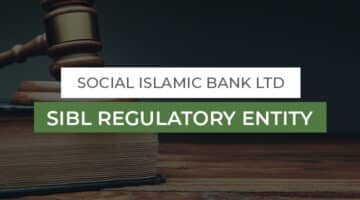
SIBL Regulatory Entity
[top_three_brokers] The Social Islamic Bank Ltd (SIBL) is a top-leading and renowned second-generation commercial bank…
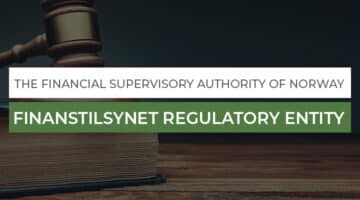
FINANSTILSYNET Regulatory Entity
[top_three_brokers] FINANSTILSYNET (The Financial Supervisory Authority of Norway) Regulatory Entity is an independent government agency…

MAS Regulatory Entity
[top_three_brokers] Internationally, the Monetary Authority of Singapore (MAS) has long been considered the gold standard…
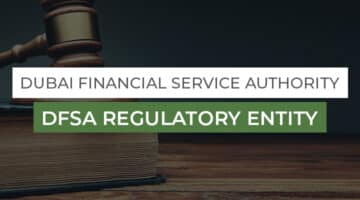
DFSA Regulatory Entity
[top_three_brokers] DFSA, the Dubai Financial Services Authority, is an independent financial regulatory agency of DIFC.…
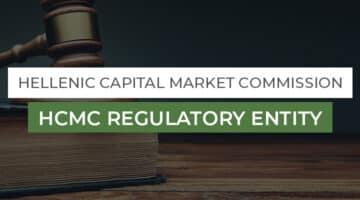
HCMC Regulatory Entity
[top_three_brokers] HCMC, the Hellenic Capital Market Commission, regulates the compliance of financial services firms with…
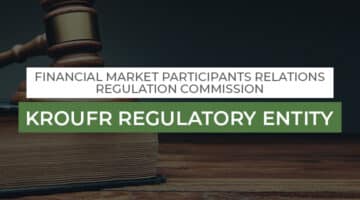
KROUFR Regulatory Entity
[top_three_brokers] The Financial Market Participants Relations Regulation Commission, KROUFR, is a non-profit regulatory organisation. Its…
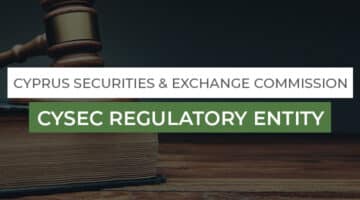
CySEC Regulatory Entity
[top_three_brokers] CySEC, Cyprus Securities and Exchange Commission, is an independent public regulatory authority responsible for…
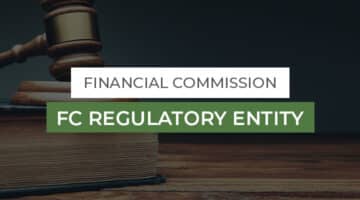
FC Regulatory Entity
[top_three_brokers] FC stands for Financial Commission, which is an independent international body for brokers and…
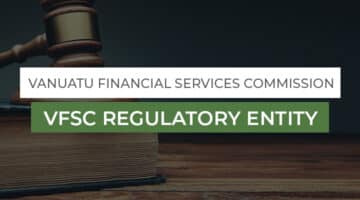
VFSC Regulatory Entity
[top_three_brokers] The Vanuatu Financial Services Commission is a regulatory organisation that supervises and regulates Vanuatu's…

CBR Regulatory Entity
[top_three_brokers] The Central Bank of Russia is the country's institution responsible for developing the state's…

